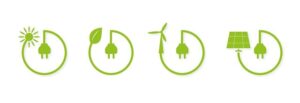Solar power is a transformative energy solution offering significant environmental and financial benefits for homes, businesses, and industries. By conducting detailed energy assessments considering historical energy usage, geographic location, and local sun patterns, potential savings from solar installations can be accurately projected. These evaluations are crucial for understanding the long-term viability of solar energy, which helps in reducing carbon footprints while also enabling users to better manage their energy consumption and costs. Energy audits by professionals provide customized guidance to optimize the benefits of transitioning to solar power, ensuring that users can save on electricity bills and contribute positively to environmental sustainability. Solar power systems utilize photovoltaic panels to convert sunlight into electricity, leveraging semiconductor materials like silicon to capture solar radiation and produce usable energy. The efficiency of these systems is affected by the quality of the panels, sunlight availability, and their installation angle, which all contribute to the system's performance and longevity. Regular maintenance ensures optimal operation, making solar power a smart choice for those looking to reduce energy costs and promote a greener planet.
Discover the transformative potential of solar power in optimizing your energy consumption and cutting costs with our comprehensive guide on energy savings assessments. This article delves into the role of solar technology as a pivotal component in reducing energy bills, highlighting its integration with other efficient practices. From understanding the fundamentals of solar power systems to calculating potential savings using advanced methodologies, we explore how a thorough assessment can lead to significant financial and environmental benefits. Furthermore, we examine real-world case studies that demonstrate the tangible impact of solar power on energy savings. By navigating through the factors influencing solar energy’s viability for your home or business, and by understanding government incentives, you can make informed decisions to maximize your savings. Embrace a sustainable energy strategy with our insightful approach, tailored to enhance your bottom line while promoting eco-friendly practices.
Understanding Solar Power's Role in Energy Savings Assessments

Solar power emerges as a pivotal component in energy savings assessments, offering a sustainable and cost-effective solution for reducing energy expenses. These assessments quantify the potential savings that solar installations can yield for residential, commercial, and industrial entities. By analyzing historical energy usage patterns, geographical location, and available sunlight, these evaluations provide insights into the feasibility and financial benefits of integrating solar power systems. They account for factors such as the size of the solar array, local weather conditions, and the efficiency of photovoltaic panels to project savings over time. Adopting solar energy not only contributes to environmental sustainability by reducing carbon emissions but also positions users as active participants in managing their energy consumption and costs. The data-driven approach of these assessments underscores the viability of solar power, making a compelling case for its role in long-term energy savings strategies. Energy audits conducted by professionals in the field offer tailored recommendations that align with individual or business energy profiles, ensuring that the transition to solar power is optimized for maximum efficiency and potential savings.
1. The Basics of Solar Power Systems

Solar power systems harness energy from the sun, converting it into electricity that can be used to power homes and businesses. At the heart of these systems are photovoltaic (PV) panels, which consist of solar cells made from semiconductor materials like silicon. These cells absorb sunlight during daylight hours and generate direct current (DC) electricity. This DC is then converted into alternating current (AC) electricity, which can be used or fed back into the power grid. The efficiency of these systems depends on various factors, including the quality of the solar panels, the number of peak sun hours in the region, and the angle and orientation of the panels relative to the sun’s position. Proper installation and maintenance are crucial for maximizing energy savings and ensuring long-term performance. Solar power offers a clean, renewable energy source that can significantly reduce electricity bills and lessen the environmental impact associated with conventional energy sources. By understanding the basics of solar power systems and how they function, homeowners and businesses can make informed decisions about their potential for energy savings and the benefits of integrating solar technology into their operations.
Solar power plays a pivotal role in energy savings assessments, offering a sustainable and cost-effective solution for households and businesses alike. By harnessing the sun’s rays, these systems can significantly reduce reliance on traditional energy sources, leading to substantial financial savings and contributing to environmental sustainability. Understanding the fundamentals of solar power systems is crucial for anyone looking to capitalize on the potential savings offered by renewable energy. The insights provided in this article offer a clear pathway towards making informed decisions about integrating solar solutions into your energy portfolio. With careful planning and professional assessments, transitioning to solar power can be both rewarding and transformative for your energy consumption patterns.
